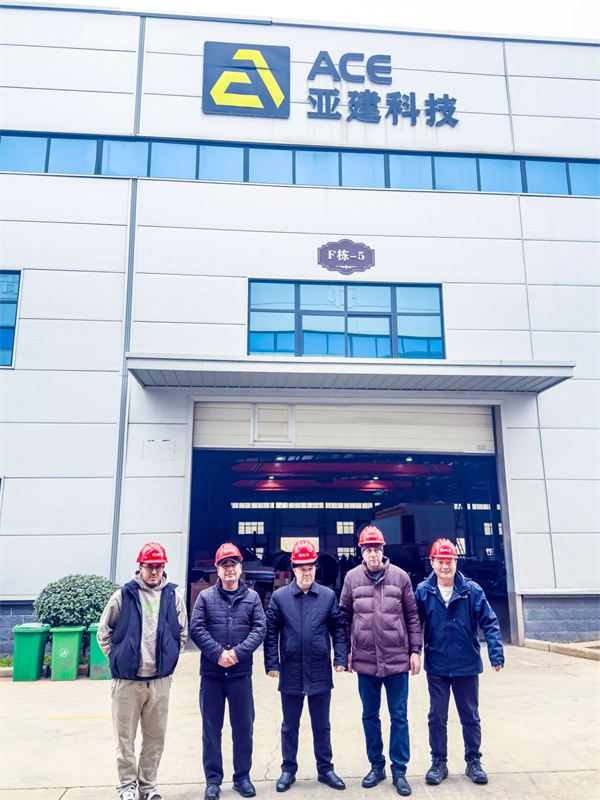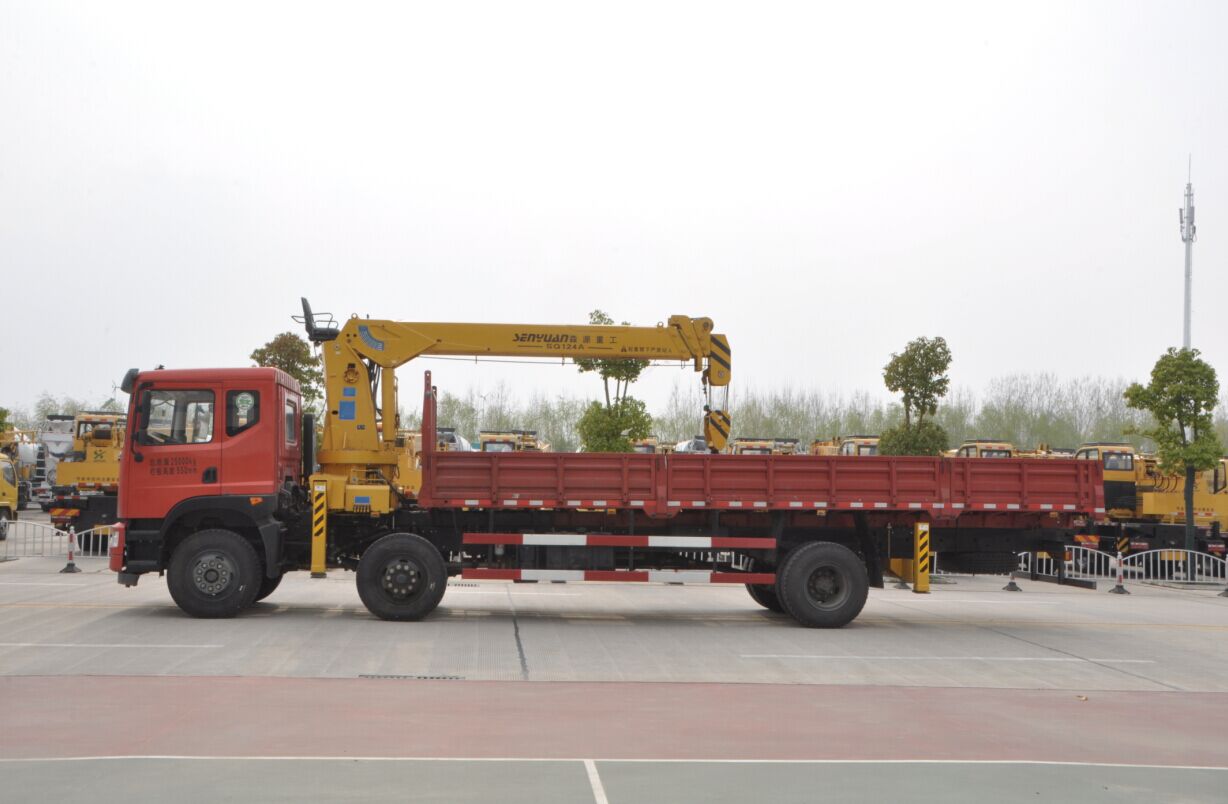A contract is a means of transaction and a means of transaction. The effect of a contract is like a sword. Method the lock & throughout; In order to maintain the safety and efficiency of the transaction, the purpose of the contract can be realized by encouraging the parties to keep their promises and restraining their performance. The ancients cloud: the person calculate is inferior to the day calculate. During the performance of the contract, some unexpected objective circumstances may disrupt the original transaction order or even lead to the cancellation of the transaction. Therefore, force majeure, the principle of change of circumstances and other legal regulations came into being, so as to resolve the disputes in the performance of the contract.
China has experienced the 2003 ldquo; Severe acute respiratory syndrome (SARS) & throughout; Epidemic, the global financial crisis in 2008 two major events. Regrettably, after the event, the legal circle and the judicial practice department did not systematically sort out and study the principle of force majeure and the change of circumstances, and did not form an operable and unified judgment standard. & other; New crown pneumonia ” During the epidemic, the legislative affairs commission of the National People's Congress, the supreme people's court and some local higher people's courts once again played the role of the temporary fire rescue team, continuing on the basis of the original law and judicial interpretation. Patch & throughout; . Obviously, these things. Patch & throughout; Unable to allay the general anxiety in all sectors of society, the debate flared up again.
Based on this, Lord fage believes that it is necessary to re-examine and analyze the principle of force majeure and change of circumstances in an emergency, and take the construction machinery industry as a specific object to give specific applicable guidelines and Suggestions.
I. whether the epidemic situation itself is a force majeure event and whether the monetary debt is applicable to the analysis of force majeure
(I) what objective circumstances are force majeure?
At present, it is generally believed that force majeure consists of natural phenomenon, governmental action and social abnormal event.
Natural phenomena (natural disasters) include earthquakes, volcanic eruptions, landslides, mudslides, avalanches, floods, tsunamis, typhoons and other natural disasters.
Government actions involve expropriation, expropriation, declaration of social emergency, and prevention and control measures against infectious diseases.
Social abnormal events include war, strike, social unrest, violent terrorist activities and so on.
(2) & other; New crown pneumonia ” Is the outbreak itself a force majeure event?
Epidemiology called “ The outbreak & throughout; An Epidemic Situation is an outbreak of a disease.
& other; New crown pneumonia ” After the outbreak of the epidemic, the state council, in accordance with the regulations on emergency response to public health emergencies, New crown pneumonia ” The outbreak is characterized as a public health emergency. The world health organization (WHO) has characterized it as a public health emergency of international concern.
& other; Severe acute respiratory syndrome (SARS) & throughout; On June 11, 2003, after the outbreak of the epidemic, the supreme people's court issued the "notice on the trial and execution of the people's court in accordance with the law during the prevention and treatment of SARS" (commonly known as “ The SARS rule ” , has been abolished), which is clearly due to the government and related departments for prevention and control. Severe acute respiratory syndrome (SARS) & throughout; The administrative measures taken due to the epidemic directly lead to the non-performance of the contract, or due to the Severe acute respiratory syndrome (SARS) & throughout; Any dispute arising from the inability of the contracting parties to perform due to the impact of the epidemic situation shall be properly handled in accordance with articles 117 and 118 of the contract law of the People's Republic of China. Obviously, & other; The SARS rule ” In the form of judicial interpretation Severe acute respiratory syndrome (SARS) & throughout; Both the epidemic itself and the administrative measures taken by the government to prevent and control the epidemic were designated as force majeure.
On February 10, 2020, zang tiewei, director of the research office of the legislative affairs committee of the standing committee of the National People's Congress (NPC), answered a reporter's question and pointed out that the outbreak of pneumonia caused by the new coronavirus was a public health emergency. To protect public health, the government has also taken measures to prevent and control the epidemic. For the parties unable to perform the contract, it is an unforeseeable, unavoidable and insurmountable force majeure. In the face of the epidemic, the National People's Congress (NPC), as the national legislature, answered reporters' questions with a spokesman. Failure to perform the contract due to epidemic prevention and control measures is a force majeure event. , from the perspective of the legal profession should be able to read the meaning of legislative interpretation.
On February 13, 2020, the second court of civil trials of the zhejiang higher people's court issued the "several questions on the trial of commercial disputes related to the outbreak of the new coronavirus", making it clear that the outbreak of the new coronavirus and its prevention and control measures are force majeure.
On February 15, 2020, the Shanghai municipal government held a press conference on the air defense situation of the epidemic of xinguan pneumonia. Failure to perform the contract due to the adoption of epidemic prevention and control measures in accordance with the law may be recognized as force majeure. .
According to Lord fage, first of all, New crown pneumonia ” The epidemic situation refers to the occurrence and development of the disease, although it has the external form. Three can't & throughout; , but it will not directly affect the performance of the contract; Secondly, through big data retrieval, cause “ Severe acute respiratory syndrome (SARS) & throughout; In the more than 20 cases of contract disputes caused by the epidemic, the judgment of some courts was that the epidemic itself was not force majeure. Third, if the epidemic itself is directly identified as force majeure, the identification of force majeure may be too broad and abused, contrary to the intention of the legislation; Fourth, if the party unfortunately suffers from the new coronary pneumonia disease, should not be recognized as force majeure, can be regarded as ldquo; Unexpected events ” To deal with.
Conclusion:
The view of the legislative affairs commission of the National People's Congress New crown pneumonia ” The epidemic situation itself is not a force majeure event, and the failure of the parties to perform the contract due to the epidemic prevention and control measures is a force majeure event; Whether the epidemic itself belongs to the cause of force majeure, there is still no unified understanding, and the future judgment standards are bound to be diverse.
(iii) whether force majeure is applicable to pecuniary debts?
What is monetary debt? In short, a debt whose principal obligation is to pay money (currency). For example, the buyer in the sale contract, the lease contract, the lessee, the seller, the lessor need to pay the price or rent.
The contract law does not distinguish between pecuniary debt and non-pecuniary debt when it stipulates the application of force majeure. According to the traditional legal theory, the object of payment of monetary debt is the currency that ACTS as the equivalent of general commodities. Currency belongs to the category of things in law and has universal substitutability without the condition of non-payment. Therefore, monetary debt is not applicable to force majeure.
Lord fage's conclusion: at present, the mainstream judgment standard of the people's court determines that monetary debt is not applicable to force majeure; With the innovation and development of civil and commercial law theory, many courts have broken through the traditional concept of legal theory and decided that monetary debt can be applied to force majeure.
ii. Guidelines for the application of force majeure in the construction machinery industry in the context of an epidemic
(I) conditions applicable to force majeure
Syllogism is an important method of reasoning and judging in formal logic. Our country belongs to the civil law system countries, the judge is to follow the syllogism reasoning and judgment method to hear the case. First, identify applicable legal provisions (major premises); Secondly, analyze the specific case of the case to determine whether it is consistent with the aforementioned legal provisions (minor premise); Third, draw the final judgment result (conclusion). Therefore, the applicable condition of force majeure is the small premise in the reasoning process, which decides the judge's judgment result.
1. The objective circumstances under the category of force majeure shall occur after the contract is formed and before the performance is terminated. Two points need to be pointed out about the time requirement of force majeure. First, if the objective situation has occurred during the contract, the law presumes that the parties are willing to take risks and bear all the consequences. Secondly, any change in the objective circumstances after the performance of the contract is not a force majeure event, because it has no impact on the performance of the contract.
2. The occurrence of objective circumstances has the attribute of unforeseeable, unavoidable and insurmountable. Unforeseeable means that when the contract is concluded, the parties cannot foresee the occurrence of the objective situation according to the general cognitive standard of the society. Unavoidable means that the objective situation is objective and cannot be attributed to the party concerned, that is, it is not caused by the fault of the party concerned. Insuperability refers to the fact that the party subjectively has performed the greatest duty of care, but still cannot prevent the occurrence of the objective situation.
3. There is an inevitable and direct causal relationship between objective circumstances and non-performance of the contract. The legal consequence of force majeure is to exempt the parties from the responsibility of not performing the contract or to terminate the contract. If the occurrence of some objective situation has nothing to do with the failure to perform the contract, why does the law allow the parties to be exempted from liability? Otherwise, this law can only be a bad law.
In the specific case, the objective situation even with the ldquo; Three can't & throughout; , nor can it be asserted that force majeure can be applied; Only when & other; Three can't & throughout; The judge can only apply force majeure
when there is an inevitable and direct causal relationship between the objective circumstances and the non-performance of the contract
(2) the notification and the burden of proof of the parties
1. The contract law of the People's Republic of China stipulates that if either party fails to perform the contract due to force majeure, it shall promptly notify the other party to mitigate the possible losses to the other party, and shall provide evidence within a reasonable period of time. < br / >
The principle of good faith is an ldquo in contract law. The emperor clause ” Is the basic moral that business subject should have; In case of failure to perform the contract due to force majeure, both the law and morality require the parties to perform the obligation of notification, otherwise the parties shall be liable for the losses caused to the other party. After the occurrence of the force majeure event, the parties shall, based on the actual situation and when they can make a relatively accurate judgment, immediately notify the other party. The notification shall be the type of evidence and shall be retained. & other; Who claims, who provokes; It is the requirement of the evidence rule of civil action that the party claiming force majeure shall bear the burden of proof and be able to prove that the occurrence of objective circumstances caused the non-performance of the contract. New crown pneumonia ” For example, the evidence includes normative documents and administrative orders issued by people's governments at all levels and epidemic prevention and control headquarters, expropriation and expropriation notices issued directly to the parties concerned based on the need of prevention and control, and news reports by authoritative media. After the parties have collected the evidential materials, they shall submit them to the other party within a reasonable time, and shall pay attention to the retention of the evidence of the submitted materials; With & other; Severe acute respiratory syndrome (SARS) & throughout; The typical cases related to the epidemic tell us that if the parties fail to provide evidence or the standards of proof fail to meet the requirements, the court will reject the claim of force majeure and refuse to grant exemption.
(iii) legal consequences of force majeure
1. The contract law of the People's Republic of China stipulates that in case of failure to perform the contract due to force majeure, the liability shall be exempted in part or in whole according to the impact of the force majeure, except otherwise provided by law. If force majeure occurs after the party's delay in performance, it shall not be exempted from liability.
If the purpose of the contract cannot be realized due to force majeure, the parties may terminate the contract.
The complexity of the transaction model and the length of the transaction design determine the type and quantity of the contractual obligations. After the occurrence of a force majeure event, it shall determine which contractual obligations directly caused by the event cannot be performed, so as to determine the exemption of all or part of the liability; Once the parties delay in performing the contract, the liability will be established immediately. If a force majeure event later occurs, there is no inevitable and direct causal relationship between the event and the failure to perform the contract, so no exemption of liability shall be claimed. During the performance of the contract, if the purpose of the contract cannot be realized due to force majeure, the parties are entitled by law to terminate the contract.
(4) & other; New crown pneumonia ” In the context of the epidemic situation, force majeure simulation scenario, as well as the analysis and judgment of legal consequences are applicable
At present, the construction machinery industry often use the contract including the retention of ownership of the installment sales contract, mortgage loan sales contract, financial leasing contract, lease after sale contract (to rent for sale), equipment leasing contract. According to the law, the above contract basically belongs to the category of sales contract, lease contract and finance lease contract. In particular, the analysis and judgment of legal consequences here are based on the applicable conditions of force majeure in the simulated scenario.
1. Simulation scenario in the sales contract and analysis and judgment of legal consequences:
(1) the seller (vendor) or sales agents where delivery equipment, or could not be normal production and cannot delivery equipment, or ready to delivery of the equipment of expropriation and requisition, or not to perform the responsibility of the warranty of quality, in time or you can't handle relevant formalities, have the right to claim for force majeure, exempt from all or part of the responsibility, also can have to cancel the contract.
(2) if the buyer (end customer) is unable or late to pay the price, or is unable or late to pay the principal and interest of the mortgage loan, it shall not claim to apply force majeure for exemption from liability or rescission of the contract as the aforesaid obligation is monetary debt.
(3) the content of suretyship liability is pecuniary debt, so the surety shall not claim to be exempted from liability or terminate the contract due to force majeure.
2. Simulation scenarios in the lease contract and analysis and judgment of legal consequences:
(1) if the lessor (manufacturer or sales agent) fails to deliver the equipment after the deadline, or fails to deliver the equipment, or is expropriated or requisitioned for the equipment to be delivered, or fails to handle the relevant procedures, the lessor shall have the right to claim the application of force majeure, claim to be exempted from all or part of the liability, or may terminate the contract.
(2) if the lessee (end customer) is unable to pay the rent or fails to pay the rent, it shall not claim to be exempted from the liability or terminate the contract due to force majeure, since the obligation is monetary debt; If the administrative order or epidemic prevention and control measures cause the lease item to change the work site or fail to undertake maintenance obligations in time, the lease item shall have the right to claim force majeure and be exempted from liability.
(3) the content of suretyship liability is pecuniary debt, so the surety shall not claim to be exempted from liability or terminate the contract due to force majeure.
3. Simulation scenarios in financial leasing contracts and analysis and judgment of legal consequences:
(1) the seller (vendor) or sales agents where delivery equipment, or cannot delivery equipment, or ready to delivery of the equipment of expropriation and requisition, or not to perform the responsibility of the warranty of quality, in time or you can't handle relevant formalities, have the right to claim for force majeure, exempt from all or part of the responsibility, also may terminate the contract.
(2) if the lessor (finance leasing company) fails to deliver the equipment after the deadline, or fails to deliver the equipment, or is expropriated or requisitioned for the equipment to be delivered, or fails to handle the relevant procedures, the lessor shall have the right to claim the application of insurrection, and shall be exempted from all or part of the liability, or may choose to terminate the contract.
(3) if the lessee (end customer) is unable to pay the rent or fails to pay the rent, it shall not claim to be exempted from the liability or terminate the contract due to force majeure, since the obligation is monetary debt; If the administrative order or epidemic prevention and control measures cause the lease item to change the work site or fail to undertake maintenance obligations in time, the lease item shall have the right to claim force majeure and be exempted from liability.
(4) the content of suretyship liability is pecuniary debt, so the surety shall not claim to be exempted from liability or terminate the contract due to force majeure.
iii. Guidance on how to apply the change of circumstances principle in the construction machinery industry in the context of an epidemic
Before the transaction, the commercial subject must make necessary assessment and judgment on the transaction basis and objective environment. After the establishment of the contract, if the transaction basis and objective environment suddenly change, the original rights and obligations of both parties may be out of balance. Only by changing or even abolishing the original contract can social fairness and justice be met.
(I) the meaning of the change of circumstances principle
& lt; the Supreme People's Court about apply the contract law of the People's Republic of China & gt; (2) "the explanation of some issues regulations, after the founding principle of changed circumstances refers to contract objective conditions at the time of the conclusion of the contract the parties unforeseen, caused by force majeure does not belong to a major change in the business risk, continue to perform the contract for one party or obviously unfair cannot realize the contract purpose, request the people's court for a change or rescind the contract by the parties, the people's court shall, according to fair principle, and combined with the actual situation of case to determine whether a change or rescind.
(b) how to understand the principle of change of circumstances?
1. As a normal and prudent businessman, before entering into the contract, he should be aware of the commercial risks such as national policies, laws and regulations, domestic and international economic operation, market supply and demand relations, raw material prices, labor costs, interest rate or exchange rate fluctuations. The foregoing constitutes a legal “ The situation & throughout; That is, the objective basis or environment on which the contract is concluded.
2, & other Change & throughout; Means that the circumstances have changed abnormally since the conclusion of the contract and cannot be attributed to the parties. Such as sudden natural disasters and abnormal social events cause abnormal changes in the social and economic environment, which causes the loss of the basis or environment at the time of conclusion of the contract, and the parties cannot realize the purpose of the contract.
(iii) what are the legal consequences of the change of circumstances?
The people's court shall, on the basis of the principle of fairness and in the light of the actual circumstances of the case, determine whether to amend or terminate the contract.
(iv) conditions of application of the change of circumstances principle
1. The fact that circumstances change. Whether the situation changes or not, should be based on whether the loss of the basis of the contract, whether the purpose of the contract can not be achieved, whether the relationship of consideration obstacles.
2. The change of circumstances shall take place after the contract is formed and before the performance is terminated. If a change has occurred at the time of conclusion, the contract is based on the changed situation and the parties are willing to make the change at their own risk. If circumstances change after the performance of the contract, it will not affect the performance of the contract. If the circumstances change during the performance of the contract and quickly disappear, the basis of the contract is restored to its original state. The principle of change of circumstances shall not apply to the above three circumstances.
3. The change of circumstances shall not be foreseen in advance and shall not be attributed to the parties concerned. If a change in circumstances is foreseen by the parties at the time of contracting, such a change is a normal commercial risk and shall not be applied. The principle of change of circumstances shall not apply if the change of circumstances is caused by a party or a third party and the party or third party is liable.
4. The change of circumstances makes the performance of the original contract obviously unfair. In the event of a change of circumstances, continued performance of the obligations under the original contract will result in an obviously unfair outcome for one or both parties. The function of the principle of change of circumstances is to balance the interests of the parties and maintain a fair transaction order.
The relationship between force majeure and the principle of change of circumstances
The relationship between force majeure and the principle of change of circumstances can be explained and understood from the following two dimensions:
1. The difference between the two. The value of force majeure lies in whether the party who fails to perform the contract can be exempted from liability and whether the contract can be terminated when some objective circumstances occur. The value of the principle of change of circumstances lies in whether the continued performance of the original contract will lead to the apparent unfairness of the contractual rights and obligations between the parties, and then maintain the fairness of the transaction by changing the content of the original contract or canceling the contract after the occurrence of some objective circumstances.
2. The connection between the two. If the purpose of the contract cannot be realized due to the occurrence of force majeure, the contract shall be terminated, the parties who fail to perform the contract shall be exempted from liability, and the principle of change of circumstances shall not apply; If the force majeure causes the performance of the contract to be difficult and has not yet reached the degree of rescission, and the performance of the original contract would be obviously unfair, the principle of change of circumstances shall be applied to change (modify) the original contract so that the contract can be continued to be performed.
(6) & other; New crown pneumonia ” In the context of the epidemic situation, the simulation scenario applying the principle of change of circumstances, as well as the analysis and judgment of legal consequences
The simulation scenario here is the same as force majeure











